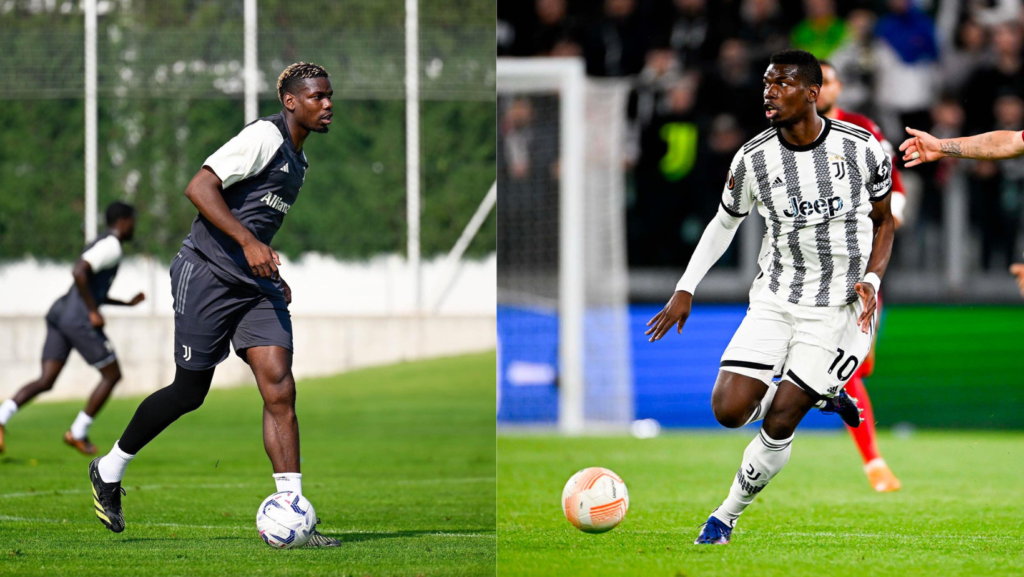
The summer of 2009 was a traumatic one for Manchester United. After a 2-0 loss to Barcelona and Pep Guardiola in the Champions League final, Cristiano Ronaldo decamped to Real Madrid. Yet, it wasn’t all doom and gloom at Carrington. Despite accusations of unethical behaviour from Le Havre, United managed to entice the 16-year-old Paul Pogba to Old Trafford. Even the jaded veterans who had watched Zinedine Zidane and Thierry Henry years earlier were calling Pogba, who has roots in Guinea, a generational talent. And after the Class of ’92 and the progress made by Ronaldo and Wayne Rooney under Sir Alex Ferguson, United had a reputation as the place to be if you were a young starlet.
Pogba lit up the turf with United’s age-group teams, and made seven appearances for the senior side in 2011-12 – the season Sergio Aguero scored the most famous goal in league history. But long before the parting of ways that summer, it was clear that Pogba had no intention of being part of Ferguson’s last title-winning side. When Ronaldo left, the legendary manager had been disappointed, but he understood. No kid born on the Iberian Peninsula turns down Real or Barcelona if they come calling.
The teenage Pogba was different. An incensed Ferguson spoke of the lack of respect shown by Pogba and his entourage and added: “I’m quite happy that if they (football players) carry on that way, they’re probably doing it away from us.”
Ferguson probably retired at the right time. More than once during his 27-year tenure, a player who thought he was as big as the club had been kicked to the kerb so that he knew his place. But the times were changing. Instagram came into being in October 2010, and was acquired by Facebook a few months before Pobga left United for Juventus in 2012.
A look at social-media followings will illustrate just how much the balance has tilted. Pogba has over 63million followers on Instagram, 20 per cent more than Manchester City, the best club side in the world. Ronaldo’s Instagram following of 623million is more than that of Real, Barcelona, United, Liverpool and City put together.
For All Sports Updates: CLICK HERE
Ferguson, and even the likes of Guardiola and Jurgen Klopp, came of age in a time when the manager’s writ was supreme. When you think of the great Manchester United sides of nearly 70 years ago, several players come to mind, most notably Duncan Edwards. But it was always Sir Matt Busby’s team, just as it was Bill Shankly’s Liverpool, Jock Stein’s Celtic and Helenio Herrera’s Internazionale.
Now, the power exerted by players and (often) cancerous agents is such that even elite managers can be sacked if they upset a star or two. When an angry Ferguson accidentally kicked a boot at David Beckham’s face more than two decades ago, it created banner headlines. Eventually, it was Beckham that left for Real, with Ferguson staying on in his seat for another decade.
If such an incident happened now, even a manager with Ferguson’s resume would be out the door in 24 hours, thanks in no small measure to the faux outrage manufactured by social media sheep. It’s no coincidence that City and Liverpool, two clubs where long-serving managers undoubtedly enjoy the last word, have been so successful, while other clubs stumble from one crisis to another as a result of players being given too much power.
🫣🫣🫣 pic.twitter.com/eo4jccDpUa
— Paul Pogba (@paulpogba) August 4, 2023
Make no mistake, Pogba was a fantastic footballer, when he could be bothered. It’s fashionable now to dismiss his second stint at United as an unmitigated disaster. But in his first full season back in 2016-17 – after four Serie A titles had made him the world’s most expensive signing – United won both the Europa League and the League Cup. The following year, he scored in France’s 4-2 win over Croatia in the World Cup final. And even in 2018-19, when a dismal United finished more than 30 points adrift of City and Liverpool, Pogba contributed 13 goals and 10 assists.
On his good days, his strength, industry and skill made him stand out as that generational player so many thought he would become. But too often, he would sleepwalk through games before a daft mistake or two. None of that affected the image though. As the first generation of football stars who could afford to splurge on thousand-dollar, gold-plated steaks with celebrity chefs, Pogba the brand didn’t depend on what he did on the field.
As much as the failed drugs test, it is that culture that was his undoing. It’s so easy now for elite-level athletes to forget the sacrifices that got them to where they are. As Shankly once said in his Scottish burr: “You get out of the game what you put into it.”
Ferguson, the last of the old-world masters, recognised that flaw in Pogba more than a decade ago. Sadly, those that surrounded him and gave him dubious advice never did. Because of that, we are where we are, with a special talent unlikely ever to grace the turf again.
You can’t call someone who won the World Cup, multiple league titles and other trophies a failure. Not by any stretch. But those that watched the teenager before he became an Instagram reel know how much better he could have been. They will take a lingering sense of regret to their graves.
Also Read: Timing Awry Again for KL Rahul



